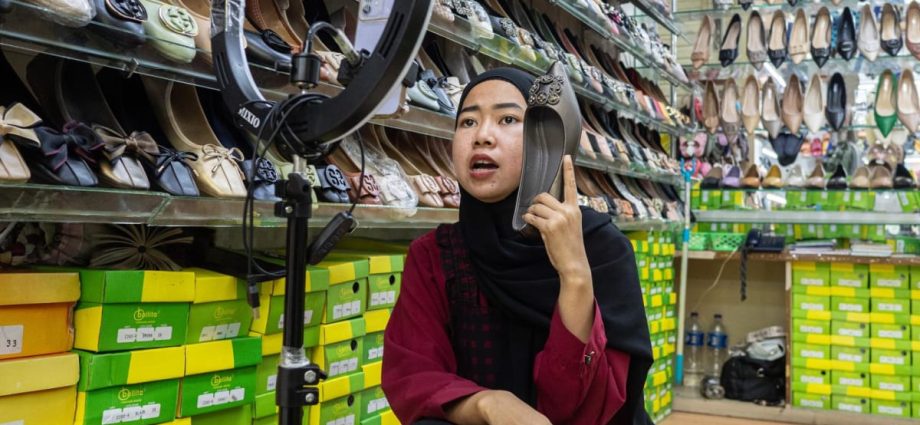
BAN TAKES EFFECT IMMEDIATELY
On Monday (Sep 25), the Indonesian government announced that it will no longer allow social media platforms to double as e-commerce sites, in order to prevent the misuse of data.
“(Social media) can only (be used to) facilitate the promotion of goods or services (but) direct transactions … (and) direct payments are no longer allowed; (social media) can only be used for promotion,” said Trade Minister Zulkifli Hasan after a closed meeting on electronic commerce issues.
Under the Revised Ministry of Trade Regulation, a minimum import transaction of US$100 will also be imposed on goods purchased from abroad.
While the ban has caught the disappointment of buyers, some sellers at physical stores in Indonesia have celebrated the move.
Textile seller Iyal Suryadi told CNA that the sale of goods online has reduced his income.
“In the local market where we sell our goods, sometimes we only sell one or two pieces of cloth in a week … If it continues like this, don’t even think about growing (the business); just being able to survive is good,” he said.
He added that the prices of items sold on TikTok Shop “do not make sense”.
“They sell goods at factory prices directly to consumers, not to distributors or resellers. It is true that we have entered the free market, but let’s not go too far.
“The government must act if it does not want the country’s economy to be destroyed. The reason is that the money in this country revolves around the small people like us, not the rich,” said Mr Suryadi, who owns a shop at Pasar Cipeundeuy located in Subang, West Java.
Similarly, Mr Raden, a seller at Tanah Abang market in Jakarta, agreed that TikTok Shop has hurt his sales due to the cheap prices offered on the social media platform.
However, he told CNA that he disagrees with the new ban and suggested that the sale of items through social media be restricted instead.
“(This is) because there are merchants here who also sell through TikTok. They are forced to sell on TikTok because the physical market is starting to be abandoned by buyers,” said Mr Raden, who goes by one name.
“In my opinion, TikTok shops should not be banned but restricted. (Instead), foreign products should be stopped and domestic products should be sold.”
In response to the ban, TikTok Indonesia said that it will abide by the laws and regulations of the country.
“However, we also hope that the government will consider the effect (of the ban) toward the livelihood of six million local sellers and around seven million creator affiliates that use TikTok Shop,” a TikTok Indonesia spokesperson was quoted as saying by Tempo on Tuesday.
The platform, owned by China’s ByteDance, reportedly said that it has received complaints from local sellers and has asked for certainty from the authorities regarding the newly issued regulation.
According to Tempo, TikTok said that social commerce emerged as a solution to the problems faced by micro, small and medium enterprises (MSMEs), adding that it believes that TikTok Shop was established to support local sellers to collaborate with local creators in order to boost traffic for their online shops.
TikTok has been hit with allegations that its TikTok Shop service is implementing predatory pricing by selling imported goods at significantly lower prices, thus leading to major profit losses for MSMEs who struggle to compete with such prices.

